Update: This article was last updated on 9th January 2026 to reflect the accuracy and up-to-date information on the page.
Artificial Intelligence (AI) is not just a buzzword for adults in the tech industry; it’s also becoming an exciting and educational field for kids. Engaging children with AI through games and activities can enhance their interest in technology, foster problem-solving skills, and inspire creativity.
According to the ESA, there are more than 215 million video game players in the United States. This explains why video games have grown into the largest and fastest-growing entertainment sector in recent years, attracting tens of billions of dollars in consumer spending each year. In 2021 alone, Americans spent more than $60 billion on video game content, hardware and accessories across all platforms, according to the NPD Group.

Here are 12 fun and educational AI games and activities that will keep kids entertained while learning about the fascinating world of AI:
1. AI Storytelling with Chatbots
Kids can create their own chatbots using platforms like Chatbot.com or Botpress. They can program the chatbot to tell stories, answer questions, or even create interactive adventures. This activity introduces them to natural language processing and basic programming concepts.
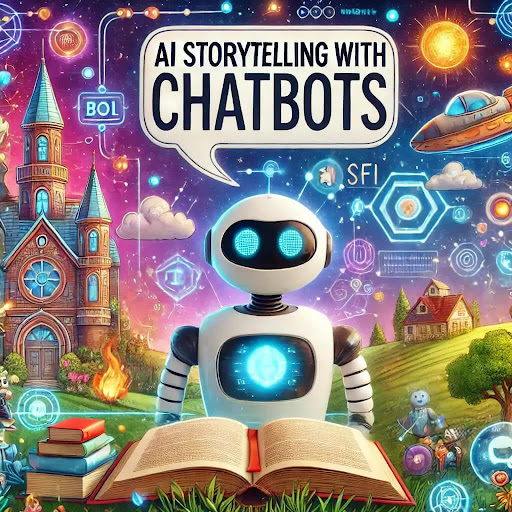
2. Play and Learn Engineering Educational STEM Games
STEM games combine education with entertainment, helping kids understand complex engineering concepts through play. These games often use AI to create interactive learning experiences. For example, games like “RoboZZle” teach kids programming logic and problem-solving skills by having them direct robots to complete tasks. AI-powered games can adapt to a child’s learning pace, provide instant feedback, and introduce engineering principles in a fun and engaging way.
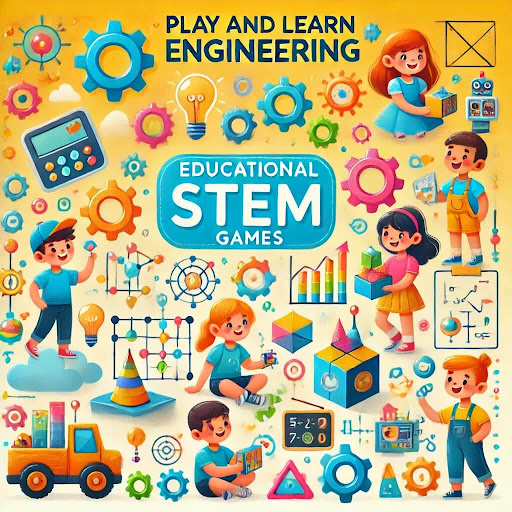
Fact About AI Games
OpenAI’s bot was specifically trained to play Dota 2, a popular online game, and successfully competed against professional human players. With AI games advancing rapidly, human opponents are no longer the only challengers in the arena.
3. AI Coding with Scratch
Scratch, a block-based coding platform, offers AI extensions that let kids add machine learning models to their projects. They can create games that respond to voice commands, recognize images, or interact with their surroundings using AI.

4. Top Video Game Design
Video game design is an exciting way for kids to learn about AI, programming, and creativity. Platforms like Roblox and GameMaker allow children to design their own video games, incorporating AI to create smart NPCs (non-player characters) and dynamic environments. This process teaches them how AI can be used to make games more engaging and interactive. Kids learn about coding, storyboarding, character design, and the logic behind game mechanics, all while developing their own unique games.
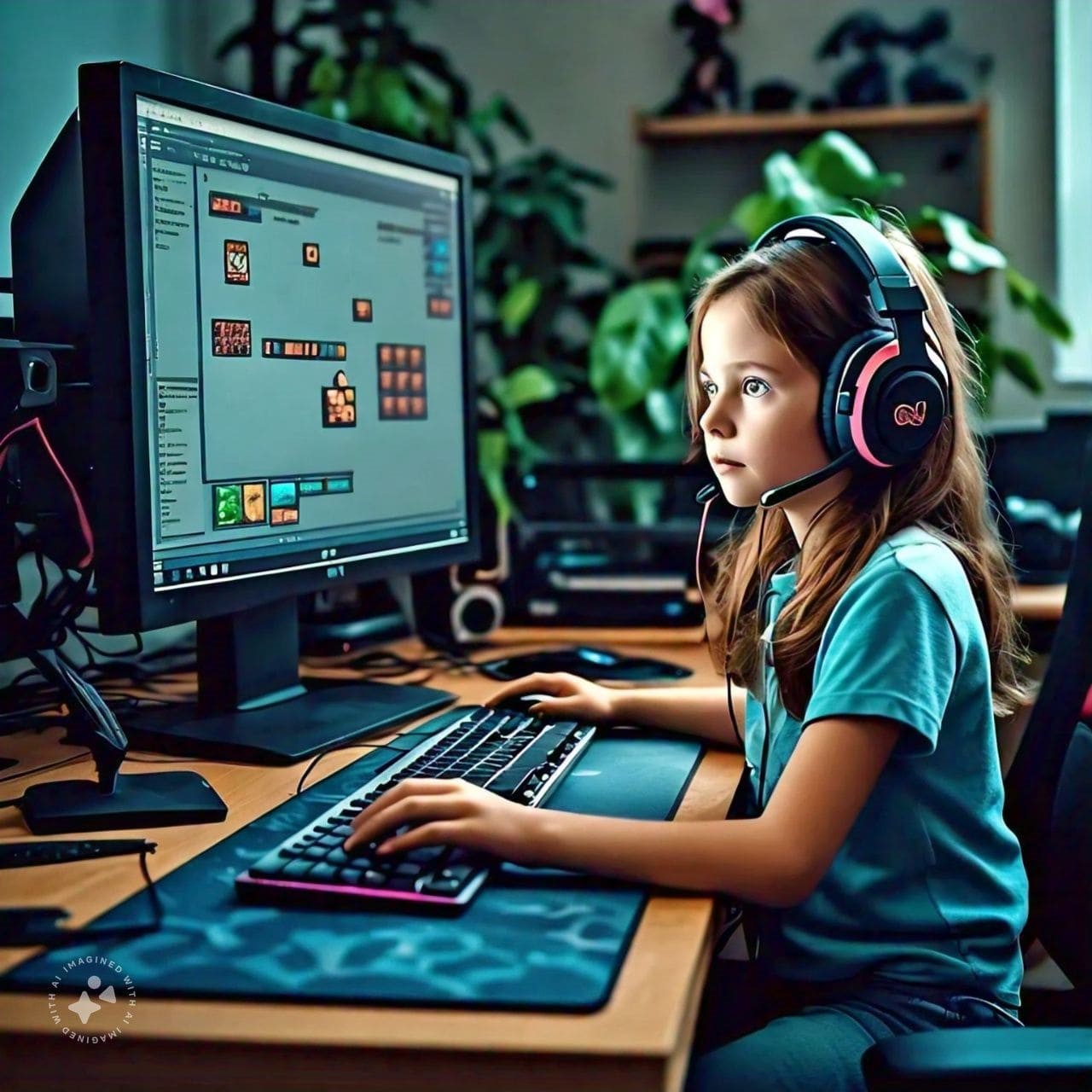
5. AI Drawing Games
AI-powered drawing games like Quick, Draw! by Google challenge kids to draw objects that the AI can recognize. This activity helps them understand how image recognition works and improves their drawing skills.
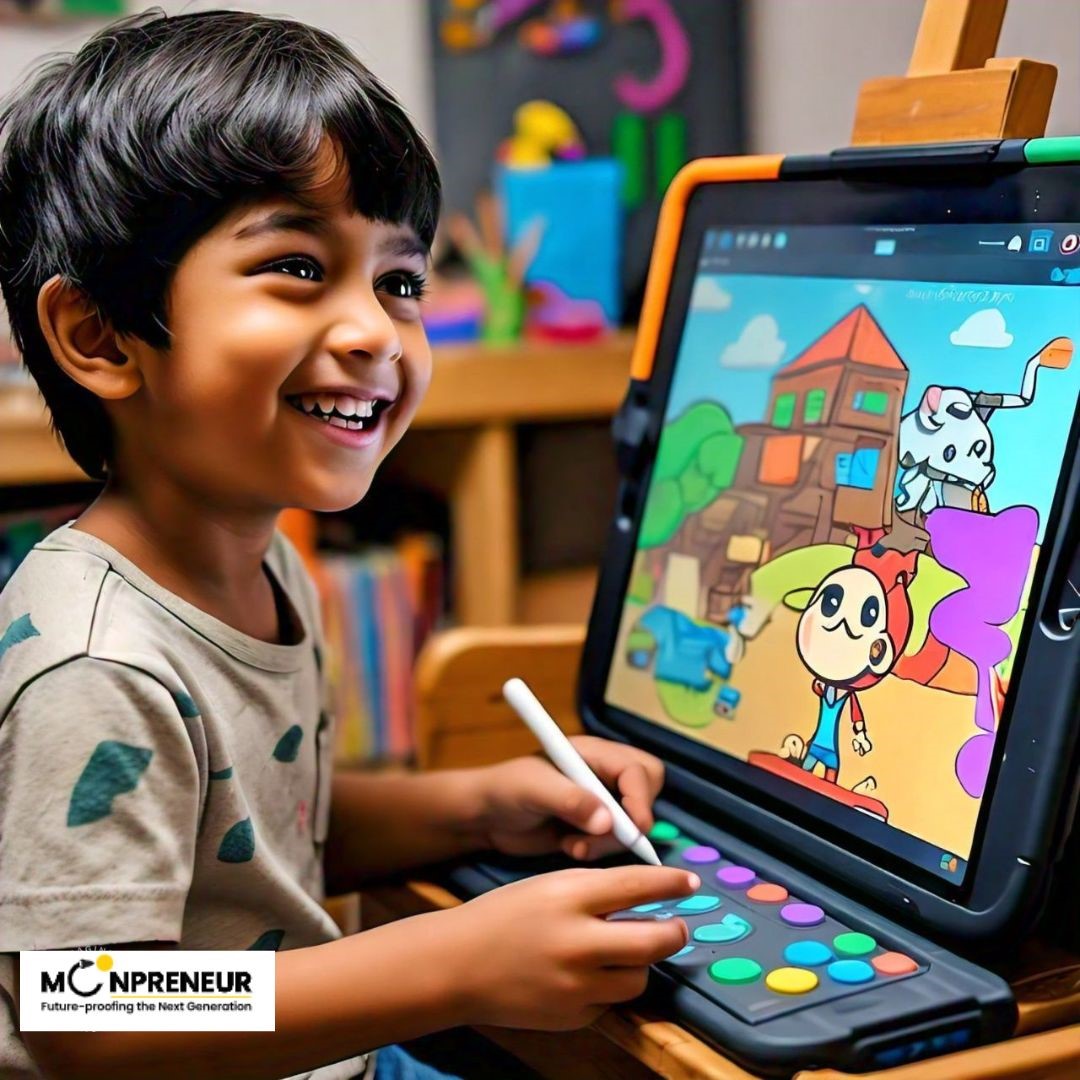
6. Game Development for Kids: A Beginner’s Guide
These tutorials on video game development for kids are excellent resources for those interested in creating their own games. These guides often break down complex concepts into manageable steps, using AI to enhance the learning experience. For instance, tutorials might include AI-driven code suggestions, error detection, and interactive examples. Platforms like YouTube or educational websites offer beginner-friendly videos that cover the basics of game development, from designing characters to coding game logic. These resources help kids understand how AI can be used to streamline the game development process, making it accessible and fun for young learners.
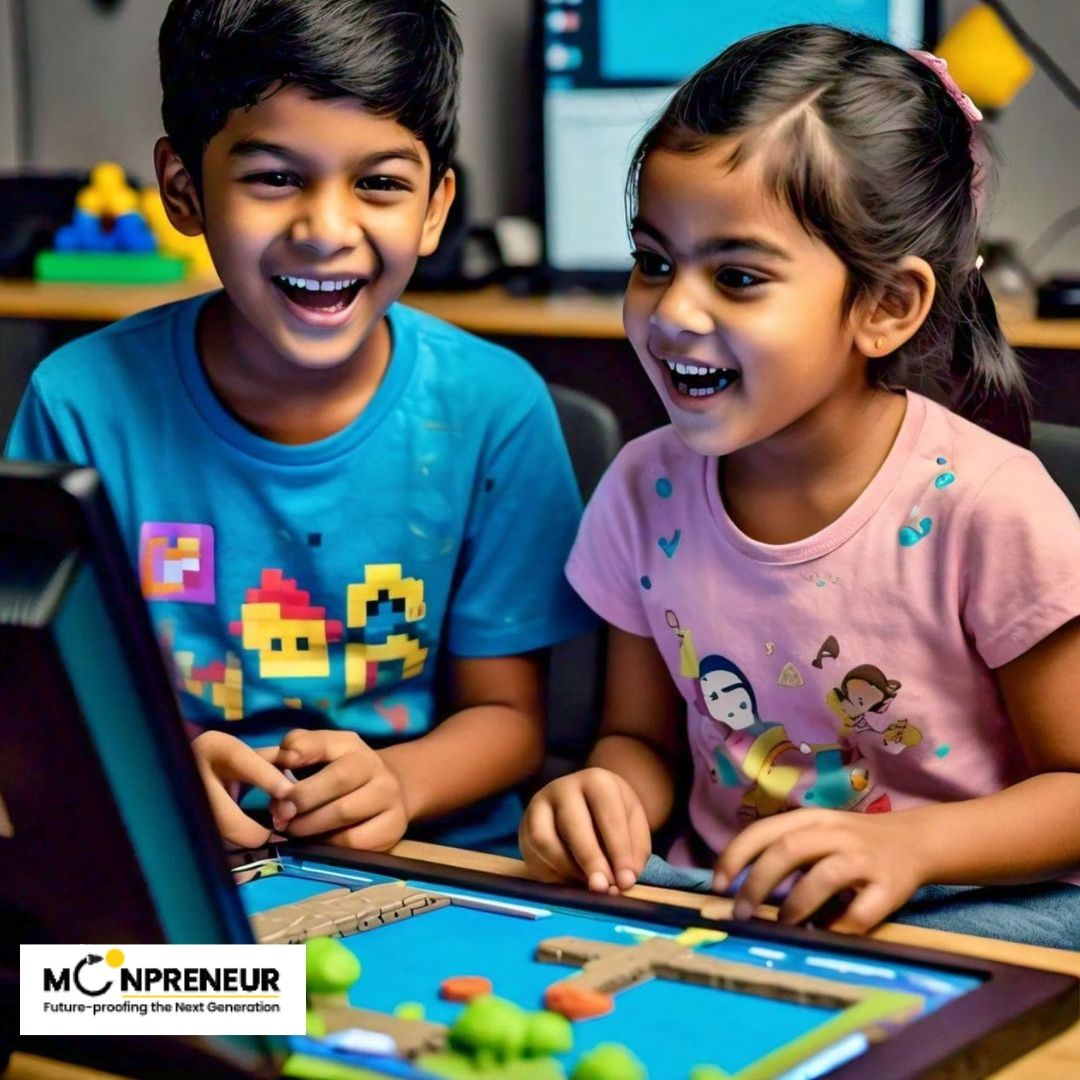
7. Fun Vocabulary Games for Kids
AI-powered vocabulary games make learning new words fun and interactive. Apps like “Wordscapes” or “Vocabulary.com” use AI to adapt to a child’s learning level, providing personalized challenges that keep them engaged. These games usually include features like speech recognition for pronunciation practice, image recognition for word association, and adaptive learning paths and fun vocabulary games that help children expand their vocabulary effectively. By integrating AI, they ensure that each learning session is both educational and enjoyable.
8. AI-Powered Robots
Robotics kits like LEGO Mindstorms or Anki Cozmo integrate AI to create smart robots. Kids can build and program robots to perform tasks, navigate mazes, or even compete in robot battles, learning about AI algorithms and robotics engineering.
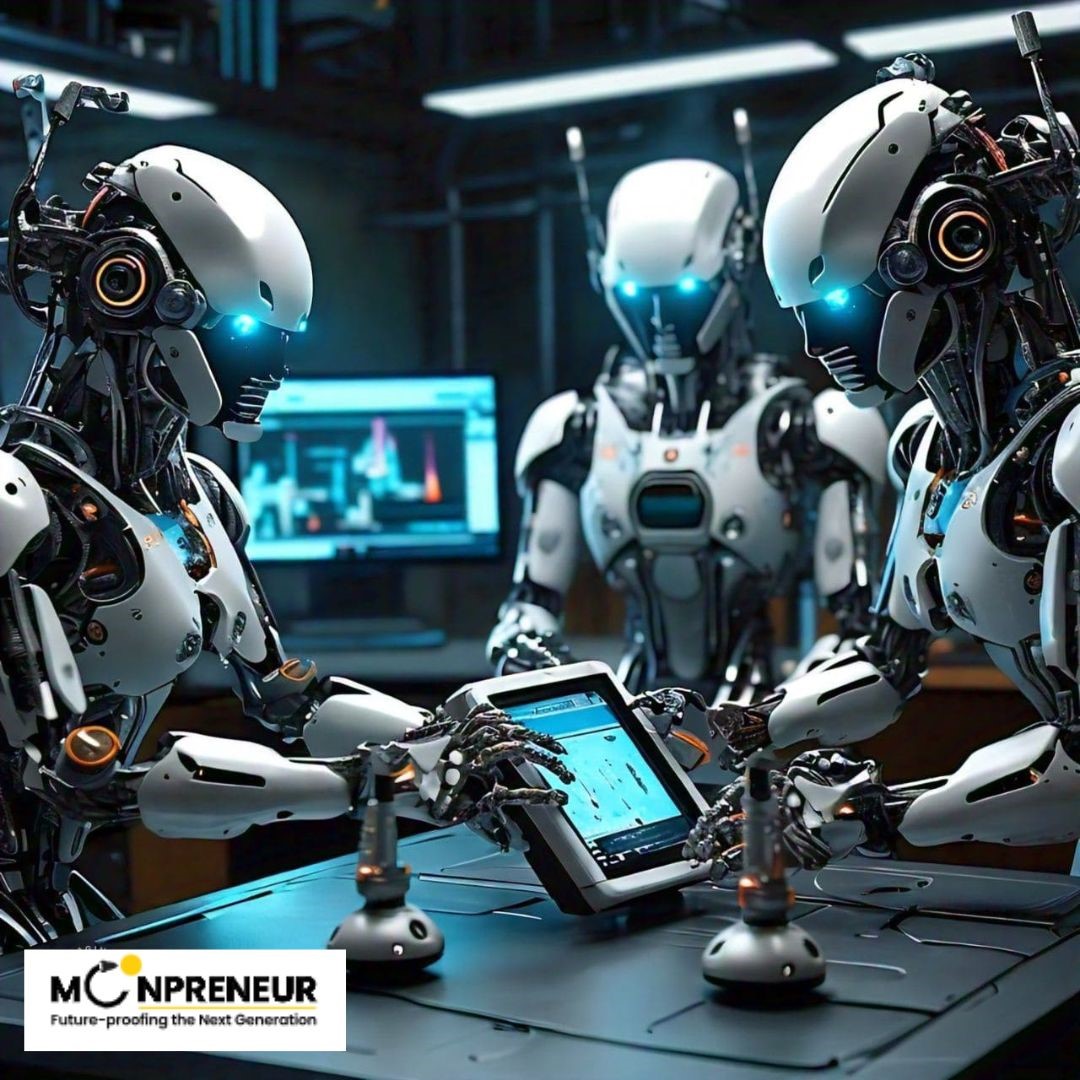
9. AI-Powered Educational Games
AI-powered educational games provide personalized learning experiences by adapting to each child’s pace, style, and needs. These AI games offer instant feedback, dynamic content, and evolving challenges, ensuring that children remain engaged and motivated. By tailoring difficulty levels and offering support where needed, AI helps children understand concepts more quickly and enjoyably. Additionally, data-driven insights from these games allow educators and parents to better support a child’s learning journey.
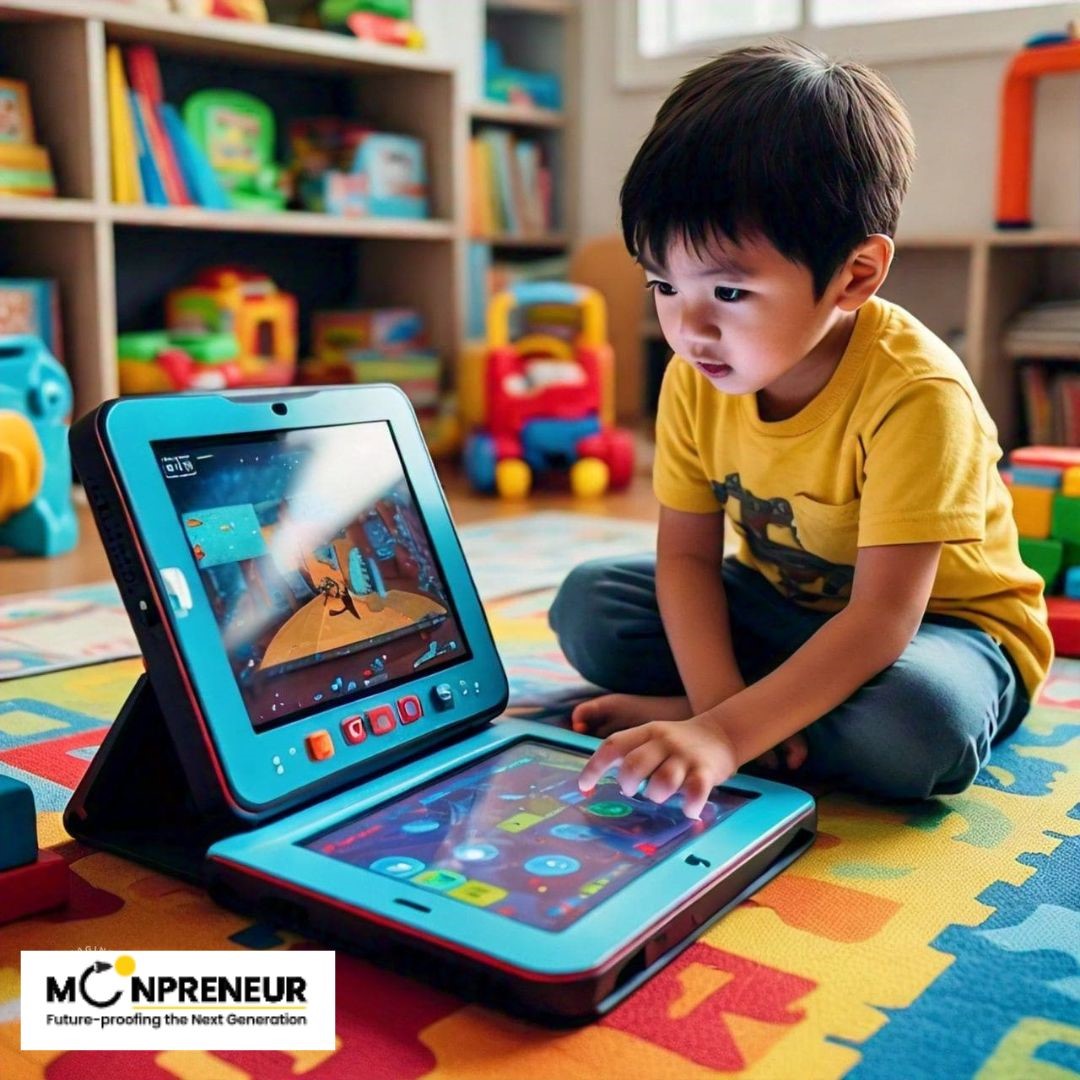
10. AI Image Editing
Kids can use AI-powered image editing tools like DeepArt or Prisma to transform their photos into artistic masterpieces. This activity introduces them to neural networks and image processing in a fun and creative way. Additionally, exploring AI games can further enhance their understanding of artificial intelligence and its applications in an engaging and interactive manner.
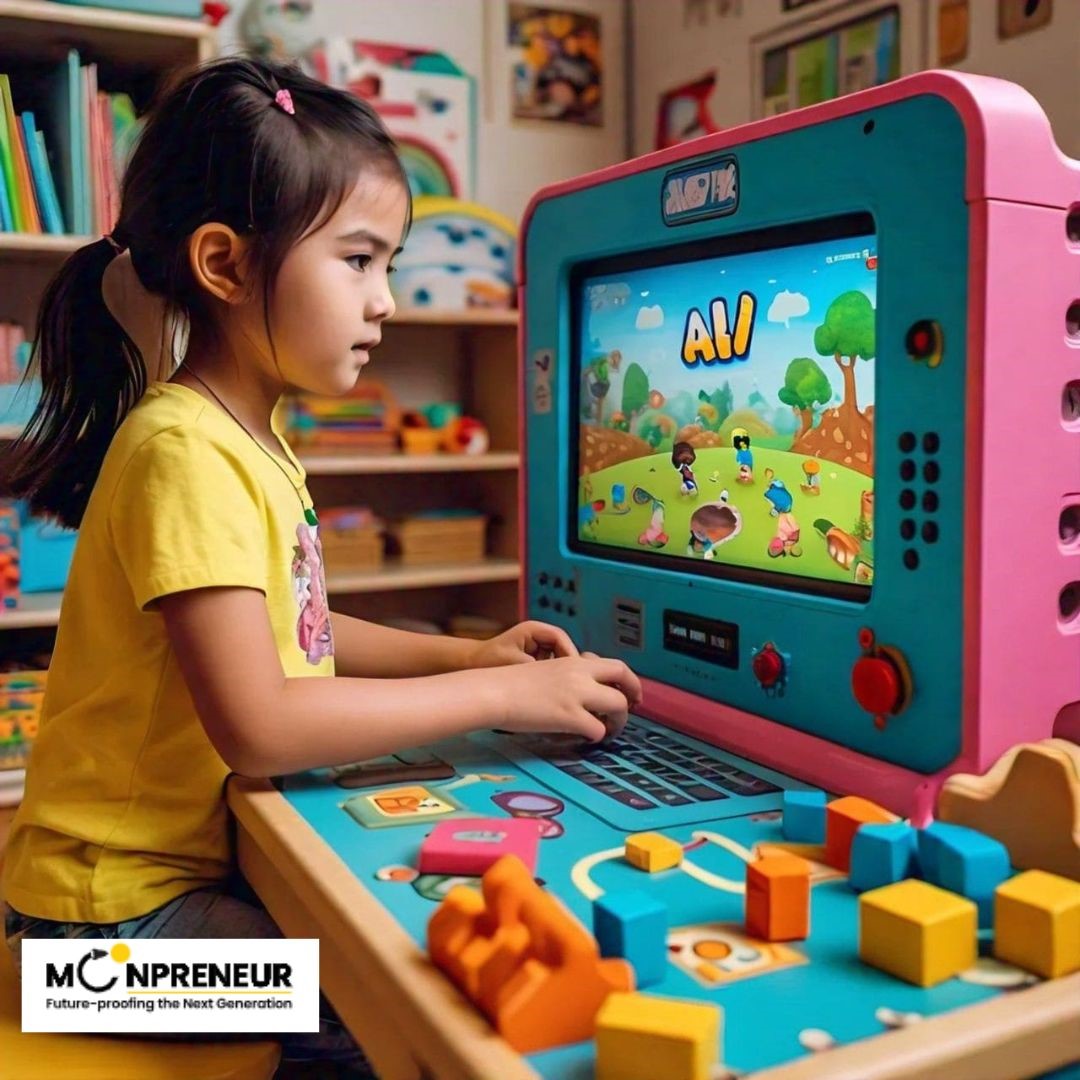
11. Skill-building with Alexa
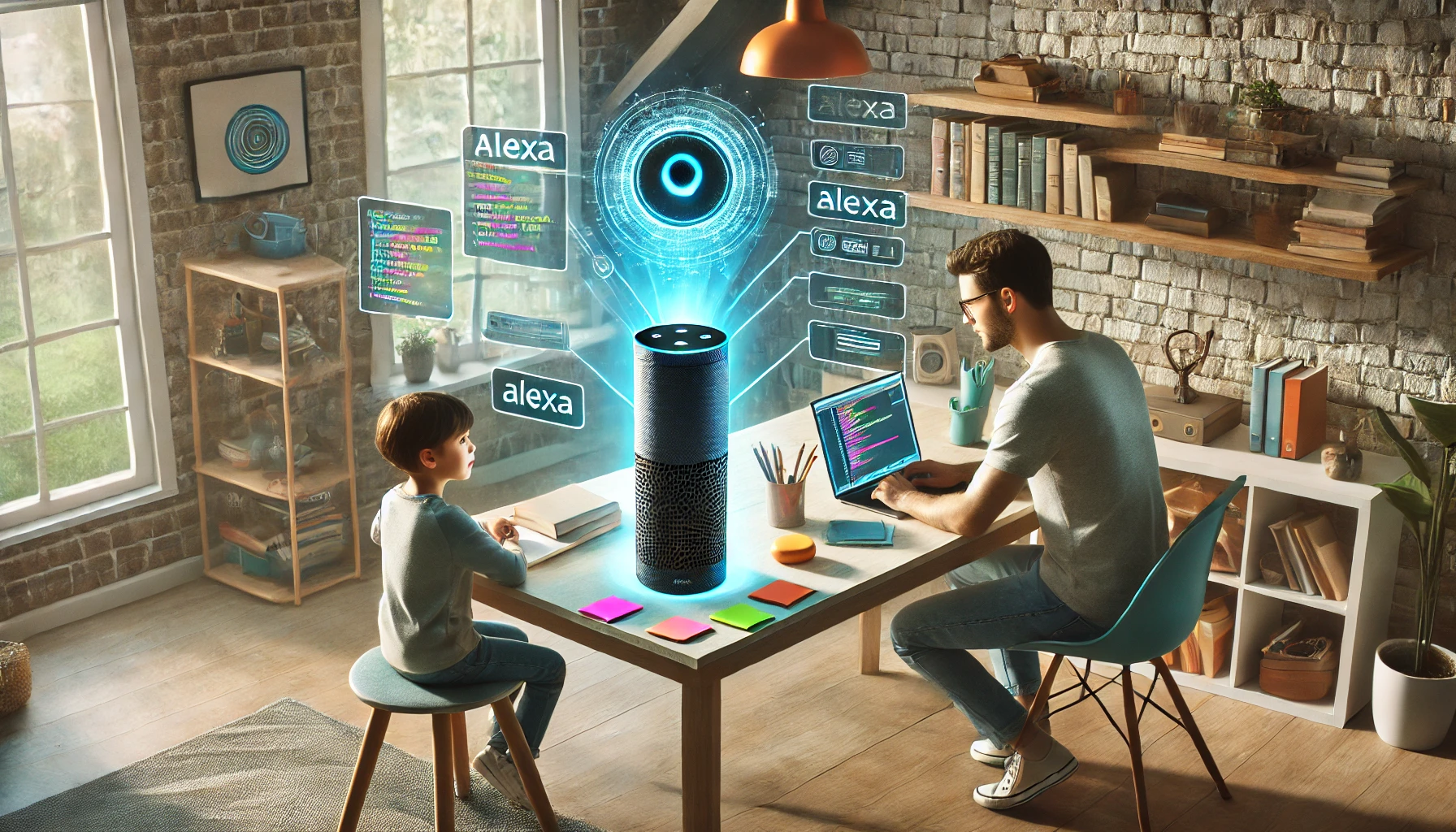 Alexa Skill Blueprints offer a fun, easy way for students to create their own custom Alexa skills without needing any programming knowledge. Using simple templates, students can design personalized games, stories, or even household lists. The process is straightforward: choose a blueprint, customize the content, and deploy the skill to an Alexa device. These blueprints cover a wide range of categories, including “Fun & Games,” “At Home,” “Storyteller,” and “Learning & Knowledge,” making it a great tool for both personal and educational use.
Alexa Skill Blueprints offer a fun, easy way for students to create their own custom Alexa skills without needing any programming knowledge. Using simple templates, students can design personalized games, stories, or even household lists. The process is straightforward: choose a blueprint, customize the content, and deploy the skill to an Alexa device. These blueprints cover a wide range of categories, including “Fun & Games,” “At Home,” “Storyteller,” and “Learning & Knowledge,” making it a great tool for both personal and educational use.
12. Bingo to Explore AI
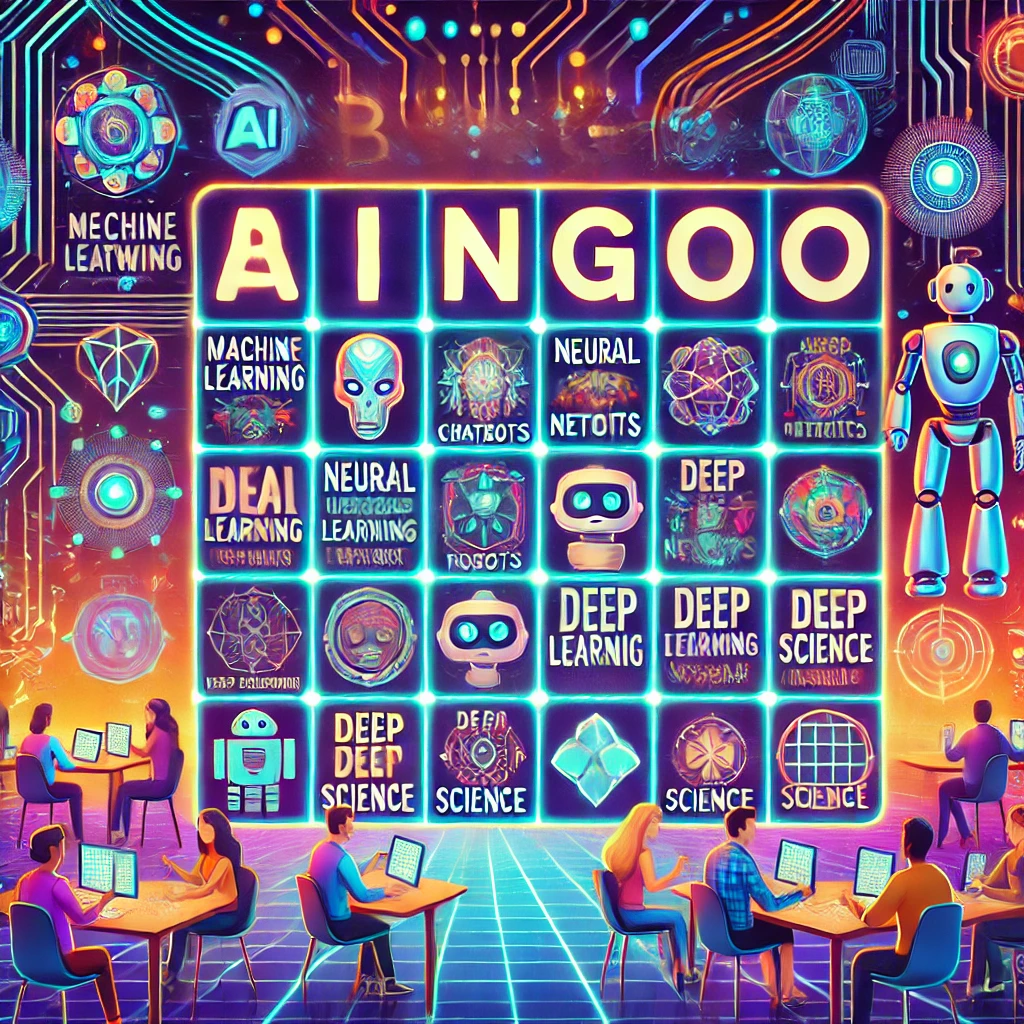 AI Bingo, created by MIT researcher Blakeley H. Payne, helps kids identify AI in their everyday lives. This interactive game is based on research that highlights how understanding technology can inspire interest in STEM and open up future career opportunities.Targeted at children aged 9 to 14, AI Bingo is part of a well-rounded, student-tested curriculum designed to boost tech literacy. To learn more, visit the link below to access the full curriculum.
AI Bingo, created by MIT researcher Blakeley H. Payne, helps kids identify AI in their everyday lives. This interactive game is based on research that highlights how understanding technology can inspire interest in STEM and open up future career opportunities.Targeted at children aged 9 to 14, AI Bingo is part of a well-rounded, student-tested curriculum designed to boost tech literacy. To learn more, visit the link below to access the full curriculum.
Conclusion
Introducing children to artificial intelligence through games and activities not only makes learning fun but also prepares them for a future where AI games will play a significant role. These activities encourage curiosity, creativity, and critical thinking, laying a strong foundation for the tech innovators of tomorrow. So, let’s empower our kids to explore the exciting world of AI and watch their imaginations soar!
Looking for a comprehensive parenting guide to ensure you are on the right track? Explore a wealth of parenting wisdom and educational insights in Moonpreneur’s blogs. Additionally, you can join our programs that nurture the next generation of innovators. Book a free trial now!


























How can I discuss the ethical implications of AI with my kids
Start with age-appropriate scenarios. Discuss topics like privacy, bias, and the impact of AI on jobs. Encourage critical thinking and open conversations.
I have a 10-year-old daughter. I want to know what is the best age to learn AI?
I believe the best age to start learning AI is 8 years and above. This period is crucial for a child’s development, as abstract thinking begins to emerge, making it easier for them to grasp complex concepts.